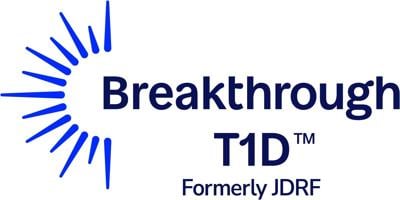Changes recommended in clinical trial design to include the voice of more people living with type 1 diabetes in evaluating therapy benefits
NEW YORK, Aug. 14, 2025 /PRNewswire/ -- Breakthrough T1D, the leading global type 1 diabetes (T1D) research and advocacy organization, announced the publication of a paper in the journal Diabetes that serves as a roadmap for beta cell replacement therapies that can cure type 1 diabetes. The paper, "Future Directions and Clinical Trial Considerations for Novel Islet β-Cell Replacement Therapies for Type 1 Diabetes", was authored by a team of Breakthrough T1D leaders and staff, including Sanjoy Dutta, Ph.D., Chief Scientific Officer, Esther Latres, Ph.D., Vice President of Research, and Marjana Marinac, Pharm.D., Associate Vice President of Regulatory Affairs, along with other leaders in the field. The paper provides guidelines that the entire T1D field can follow to accelerate the availability of next-generation beta cell replacement therapies for people with T1D by designing clinical trials that speed their development, regulatory approval, access, and adoption.
Decades of research have demonstrated that beta cell replacement therapies can be effective and, in some cases, have resulted in insulin independence for individuals with T1D. However, currently available beta cell replacement therapies are limited to people with T1D who have unstable blood sugar management and severe hypoglycemia and require the use of medicines that broadly suppress the immune system to protect the cells.
The daily burden of T1D is substantial for everyone living with the condition, and the paper emphasizes the need for innovative clinical trial design for cell therapies that broadens eligibility criteria so that more people with T1D can participate and experience the potential benefits. It also outlines the importance of expanding the current outcomes used to determine the effectiveness of cell therapies in clinical trials to include patient-reported outcomes and continuous glucose monitor metrics, such as when a participant's blood sugars are in the target range.
"Clinical trials to support the development of islet cell replacement therapies need to evolve to include a broader representation of people living with type 1 diabetes who could benefit from these novel therapies," said Marjana Marinac. "This includes expanding the outcomes used to assess the benefits of cell replacement that reflect how people with T1D feel and function."
"There are still significant unmet needs in the type 1 diabetes community. Breakthrough T1D's roadmap is supported by the assessment of clinically meaningful outcomes and driving research toward solutions that address key factors such as cell sources and protection strategies that will broaden the people with T1D who could benefit from emerging cell replacement therapies," said Esther Latres.
The paper's focus on the pathway for future cell therapy research aligns with Breakthrough T1D's mission priorities and Project ACT, the organization's initiative to make curative cell therapies for T1D a reality.
About Breakthrough T1D (formerly JDRF)
As the leading global type 1 diabetes research and advocacy organization, Breakthrough T1D helps make everyday life with type 1 diabetes better while driving toward cures. We do this by investing in the most promising research, advocating for progress by working with government to address issues that impact the T1D community, and helping educate and empower individuals facing this condition.
About type 1 diabetes (T1D)
T1D is an autoimmune condition that causes the pancreas to make very little insulin or none at all. This leads to dependence on insulin therapy and the risk of short and long-term complications, which can include highs and lows in blood sugar; damage to the kidneys, eyes, nerves, and heart; and even death. Globally, it impacts nearly 9 million people. Many believe T1D is only diagnosed in childhood and adolescence, but diagnosis in adulthood is common and accounts for nearly 50% of all T1D diagnoses. The onset of T1D has nothing to do with diet or lifestyle. While its causes are not yet entirely understood, scientists believe that both genetic factors and environmental triggers are involved. There is currently no cure for T1D.
Contact:
Casey Fielder
509-651-0087
![]() View original content to download multimedia:https://www.prnewswire.com/news-releases/breakthrough-t1d-authored-paper-paves-the-way-for-beta-cell-replacement-therapies-on-the-path-to-cures-for-type-1-diabetes-302530349.html
View original content to download multimedia:https://www.prnewswire.com/news-releases/breakthrough-t1d-authored-paper-paves-the-way-for-beta-cell-replacement-therapies-on-the-path-to-cures-for-type-1-diabetes-302530349.html
SOURCE Breakthrough T1D, Formerly JDRF









(0) comments
Welcome to the discussion.
Log In
Keep it Clean. Please avoid obscene, vulgar, lewd, racist or sexually-oriented language.
PLEASE TURN OFF YOUR CAPS LOCK.
Don't Threaten. Threats of harming another person will not be tolerated.
Be Truthful. Don't knowingly lie about anyone or anything.
Be Nice. No racism, sexism or any sort of -ism that is degrading to another person.
Be Proactive. Use the 'Report' link on each comment to let us know of abusive posts.
Share with Us. We'd love to hear eyewitness accounts, the history behind an article.